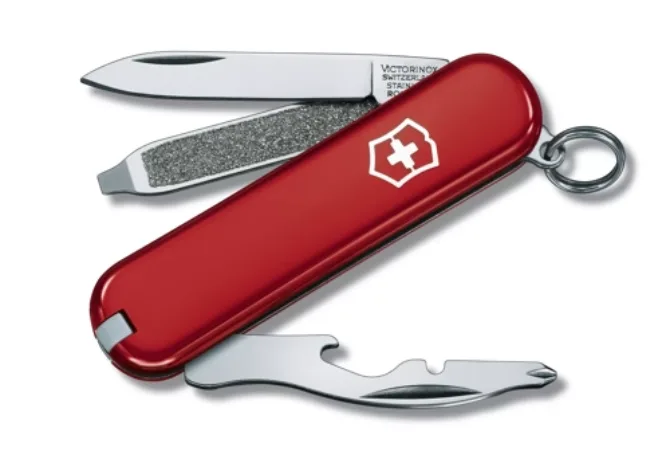
Write Yourself Out of a Writer’s Funk
A LinkedIn survey asked for a comment on overcoming writer’s block. The executive editor posted a blog about how to beat writing boredom. My solution to both: Write early and often about any topic that captures your attention or sparks your imagination.
The only way I’ve found to defeat writer’s block and escape boredom is to write. There is no magic exercise or Escape Room exit. Drinking a lot of alcohol won’t help either. The trick is writing yourself out of a funk.
Truthfully, I’m not sure writer’s block is real. And boredom is more a state of mind than a physical impediment. Nothing should stop you from writing, even if what you produce is mush. That’s what editing is for. Mush can be turned into a wonderful stew.
If you are stuck in a rut, look for a new angle. If the tired story angle bores you, it probably bores your readers, too. Instead of writing the same kind of story 15 times, turn the story on its head.
I can’t count the times I’ve written a story only to discover my best line is in the last paragraph. I didn’t waste your time getting to something good; I just took a roundabout way to get there. Who cares. I wasn’t sulking. I was writing.
Colleagues have come to me saying a topic has them stumped or they have run out of good ideas. Nonsense. As kindly as I can, I tell them to keep looking for inspiration and keep writing.
To avoid disappointing, here are some techniques that might help keep you writing on your keyboard or notepad:
Read
Most great writers are indefatigable readers. But whether you read a little or lot, you can bypass writer’s block or boredom by catching the ray of an idea in a newspaper article or conducting a Google search. You don’t need more than a spark to ignite your own creative engine. Read a novel for enjoyment. Skim material for inspiration – or at least a promising lead.
Type
It’s a journalistic habit, but I frequently write the first paragraph of my blogs multiple times. I try different lead-ins, substitute facts and juggle wording. I create options and, in the process, tease out my own mind’s creative juices. It’s like a Wordle game in search of a great sentence. The typing, thought process and self-amusement won’t leave room for writer’s block or boredom.
Rewrite
To unstick your writing gears, go back to an earlier piece you wrote and rewrite it better. No one will know or care if what you create is a better version of one of your earlier writing works. All that matters is you tuning up your writing skills for whatever new task is at hand. In the off chance your rewrite took you in a new direction, run with it. That’s a two-fer bonus.
Take a Shower
Yes, get undressed and hop into the shower (not the tub). Close your eyes and let the shower spray stimulate your brain. The worst that can happen is you take a shower. However, you might be surprised at what water drops on your scalp can stimulate. Some of my best ideas occur in the shower. I’ve taken to keeping a tablet outside the shower to write them down before I forget them. Are they always winning ideas? No. But the percentage of interesting ideas is high to validate thinking in the shower.
Accept a Challenge
Anyone can get bored writing about the same thing, so accept – or invent – the challenge of writing something different. Select a fresh topic. Conduct an interview – possibly a lot of interviews. Try a different writing style (Gonzo journalism can loosen up anyone’s writing muscles). Most important, get out of you own mud and ride in some new tracks.
Find a New Angle
If you are stuck in a rut, look for a new angle. If the tired story angle bores you, it probably bores your readers, too. Instead of writing the same kind of story 15 times, turn the story on its head. Find a refreshing way to tell the story. Explore and experiment to energize your writing and make what you write electric for readers.
Follow the Queen
The late Queen Elizabeth II was not known for being a gifted writer or an English language scholar, yet she managed to pen some of the most moving words ever written, including these endearing words that she expressed over her 70-year reign:
“I cannot lead you into battle. I do not give you laws or administer justice. But I can do something else. I can give you my heart and my devotion to these old islands and to all the peoples of our brotherhood of nations.”

The late Queen Elizabeth II drew on a historical reference from World War II to reassure the British public that the misery and isolation of the coronavirus pandemic would pass and “We will meet again”. She found a way to write what needed to be said.
“Reflecting on these events makes me grateful for the blessings of home and family, and in particular for 70 years of marriage. I don’t know that anyone had invented the term ‘platinum’ for a 70th wedding anniversary when I was born. You weren’t expected to be around that long.”
“We should take comfort that while we may have more still to endure, better days will return. We will be with our friends again. We will be with our families again. We will meet again.”
Follow the Queen’s example. When the need arises to write, rise to the occasion and write. Find the words that reassure, inform or entertain. You don’t need a crown, just an idea and a keyboard.




